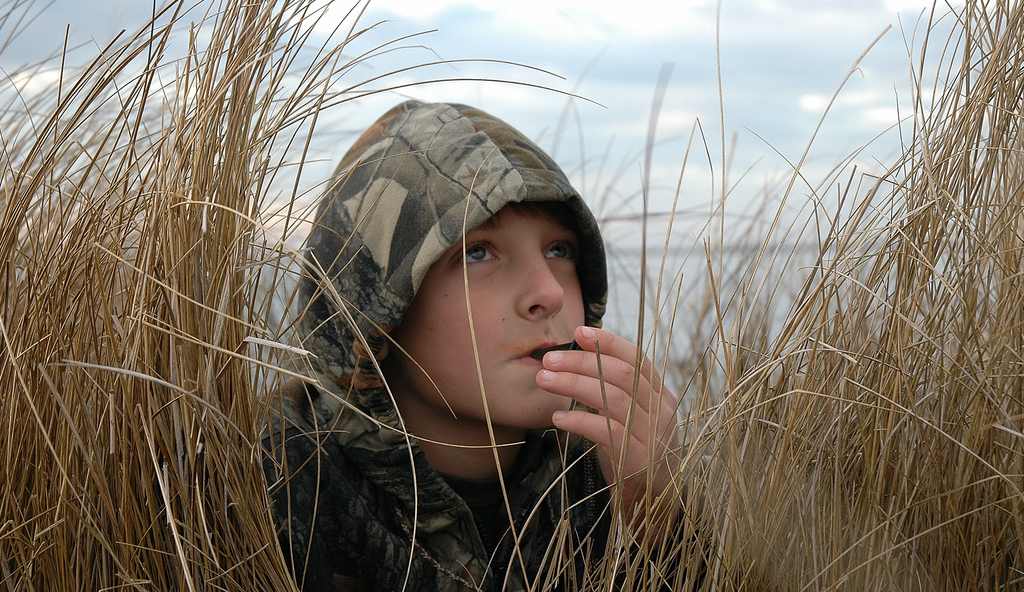’ll never forget that first time eighteen years ago when dad told me to “ get on the whistle”. We ended up getting about 75 greenwings to come light in the decoys that morning! Naturally we had big ducks on our minds so we didn’t even shoot, but we could see an immediate change in their attitudes and the results of the whistle were overwhelming.
Never underestimate the effectiveness of a whistle! Many hunters don’t feel the need for whistles simply because they may not have pintails in their area while they may have mallards widgeon and teal. As we have experienced many times these four species of ducks DO respond to the whistle. Most of our most successful hunts last year were late in the season using whistles in conjunction with our mallard calls. I hunt in a very small pothole in the marsh, which is not usually frequented by teal and pintail since they usually prefer larger bodies of water. The whistle has made a noticeable difference in helping me attain a daily bag limit including the species.
We try to identify the ducks before we call to them so that we can “ speak their language”. At times, however it can be difficult and even when you mistakenly use the wrong call, can sometimes be to your advantage. For example when calling “call shy” mallards. Often a pintail whistle will elicit an immediate response where perhaps a mallard hen call would cause the birds to flare forcing you to really “lean” on the call even more.
I know a guide that swears by using our bluewing teal call on mallards on very windy days. As previously mentioned, using whistles in conjunction with your mallard calls is an effective technique when everyone in the blind wants to call. That is an excellent opportunity to have one person lead off on his mallard call while the others fill in using whistles. The most obvious opportunity our whistle affords is that it is a “four in one” call, which gives him a chance to quickly duplicate the sound of incoming ducks with only fingertip control. It is also most helpful to select decoys based on the species found in your particular area.
One of my favorite ways to use whistles is in an effort to get youngsters in starting to call. I’ve often get a twitch when I hear fathers say that they don’t get many opportunities to hunt so there’s no way that they are going to let their kid “mess up a flight by squealing” a call. There is absolutely no sound that a youngster can make on a whistle that will scare ducks. I don’t care if he plays “Mary had a little lamb”ducks are accustom to hearing all kind of whistles and peeps- these are natural sounds to our fine feathered friends- and anything he does is going to simulate some type of bird. Let your young hunter start enjoying the real fun of the sport… the CALLING! It will not only make him feel that he had a part in bringing in that duck, but it will probably make him/her want to go with you more often and you’ll get more passes from the home front! Who knows one day that little kid may put “ old dad” to shame in the calling arena. Just ask my dad!










